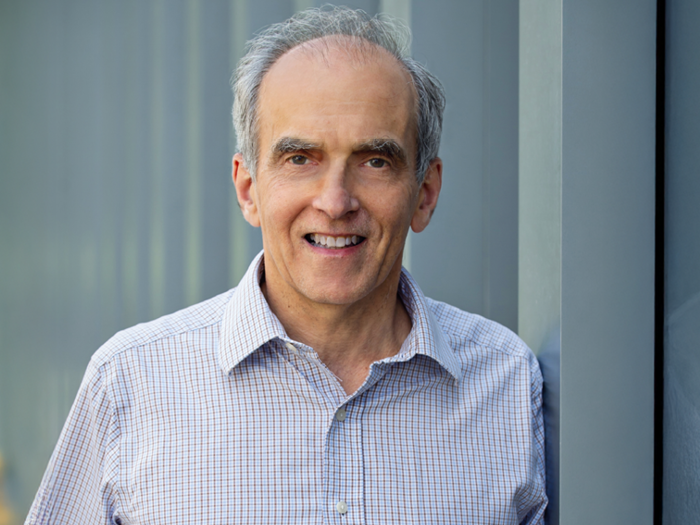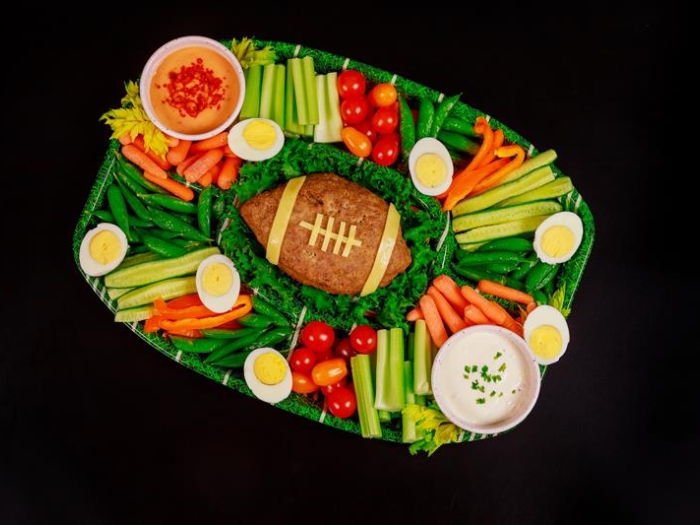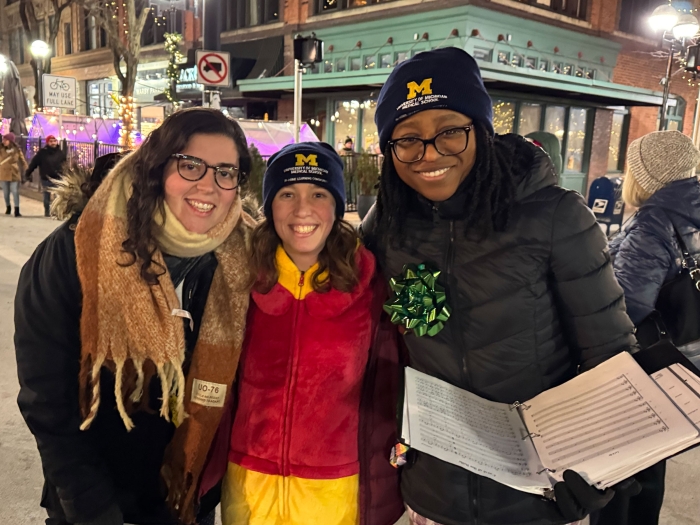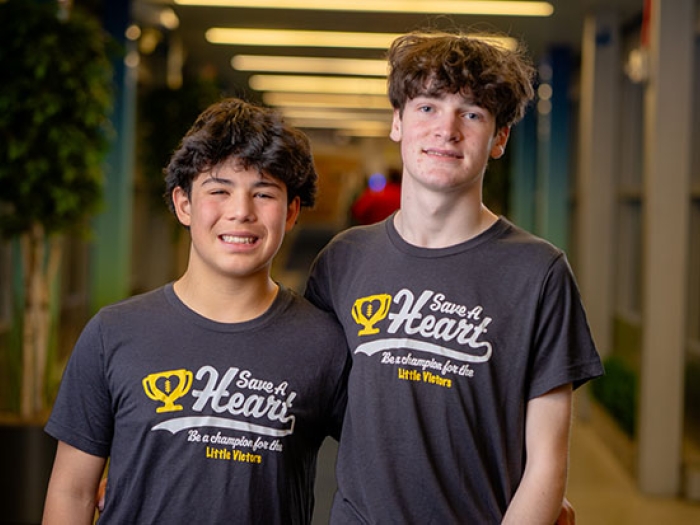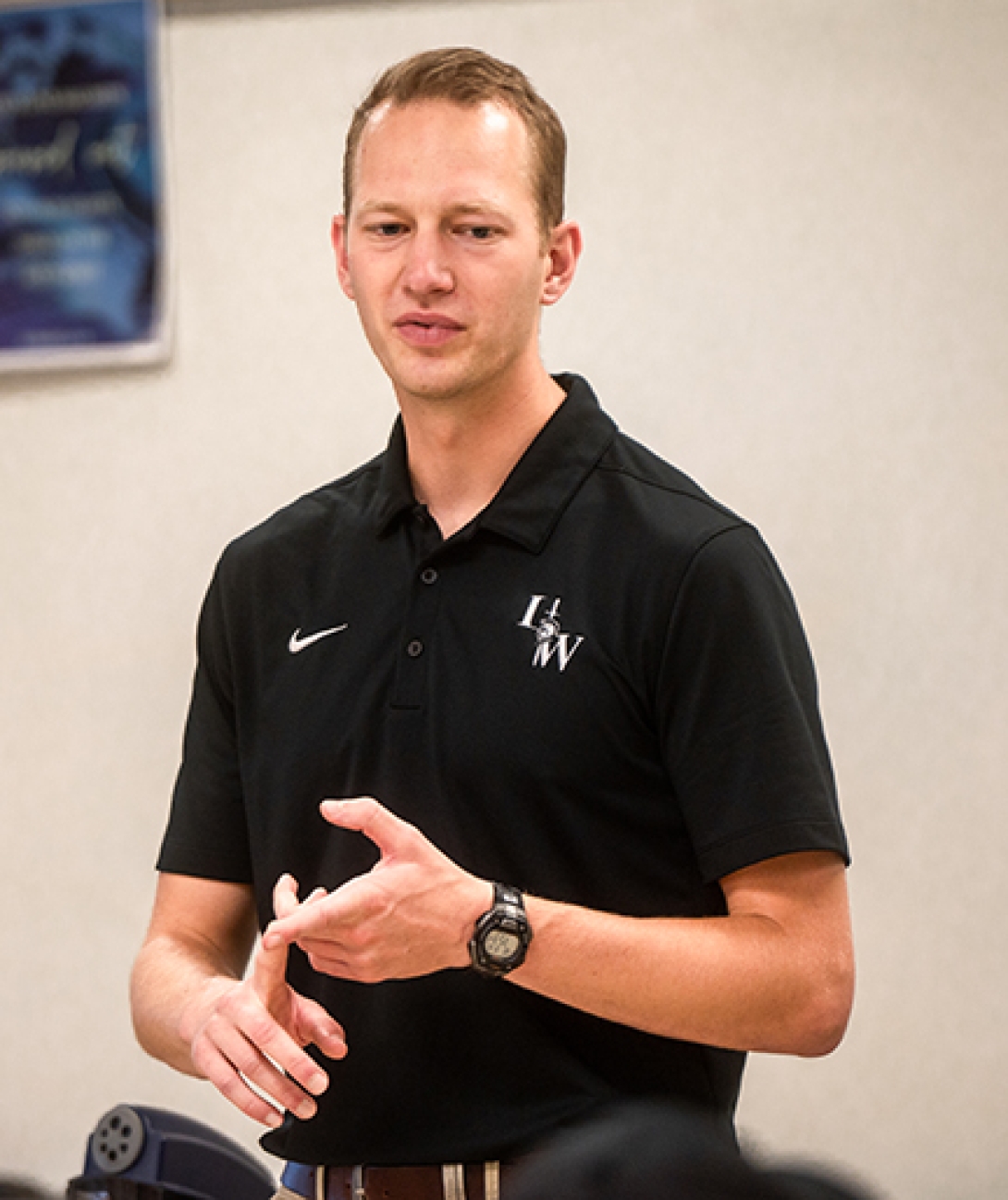
David Mueller had a busy summer. He moved from Wisconsin where he had taught High School Chemistry and Computer Science for five years, to start teaching 9th grade Biology, Anatomy and Physiology, and Physical Science at Lutheran Westland, in Westland Michigan. And while making this move, he decided to rekindle his passion for science with an internship in M&I.
Mueller had had some exposure to microbiology and lab work during his undergraduate studies at the University of Wisconsin - LaCrosse where he received his degree in Biology Education and minor in Chemistry Education in 2018. His favorite class in high school was Anatomy and Physiology, and he thought he would go into Athletic Training or Physical Therapy. But pretty early in college, while taking a General Biology course, he realized he liked molecular biology even more. His General Biology professor worked in a microbiology research lab for a local hospital, and Mueller began working in the lab with her after his sophomore year. He really loved it and ended up working in that lab part-time for about 3.5 years as a student.
Here is what Mueller says about his experience interning in the Carruthers lab.
-
What motivated you to spend your summer in Vern’s Lab? How did you choose his lab?
Around 2021, I started listening to a podcast called This Week in Microbiology, which is co-hosted by professor Michelle Swanson. This made me realize how much I missed working in research, and I began looking for opportunities to get back into a research lab during my summers. When I got the offer to come to Michigan and found out how close I would be to the U-M, I decided to reach out to Michelle to see if she knew of any one in M&I that might take a school teacher for summer help. She directed me to the websites of several colleagues so I could read about their research.
I reached out to Vern first for a couple reasons. First, I thought it was really unique to see a microbiology lab studying a eukaryotic pathogen. Second, his website included both information about his lab's research as well as his training philosophy. I got the impression that he really cared about mentoring and developing quality scientists. Third, I think it really helped that “Carruthers” came pretty early in the alphabetical order, so while there are a lot of labs doing interesting research, his was one of the first I found.
-
What was most surprising to you in Vern’s lab?
I came to Vern's lab knowing almost nothing about Toxoplasma gondii and my goals for the summer were to learn as much about toxo as I could, trying to be a productive lab member and not being a hindrance to the other members' projects.
The thing that surprised me the most, was how helpful and welcoming everyone in the lab was to me. Vern would regularly take time out of his day to explain Toxo's structures and invasion strategies or lab techniques to me individually. I can also remember clearly one of my first days in the lab. I was meeting with Matt O'Meara from the Department of Computational Medicine and Bioinformatics (DCMB), about the project I would be working on. At the end of the meeting he said to me: "We're all really excited to have you working here this summer." It felt really great to know that, even with my lack of experience, these researchers solving really complex problems were still excited to have me be a part of the team. I don't think we realize often enough how big of an impact just expressing our gratitude to one another or telling someone we're excited to work with them has on making someone feel welcome.
“I don't think we realize often enough how big of an impact just expressing our gratitude to one another or telling someone we're excited to work with them has on making someone feel welcome.”
- What was/were your favorite moment(s) in the lab?
My project this summer was testing several potential inhibitors in an enzyme assay. One of the best moments was when I was able to successfully run the assay independently for the first time. I got it on my second try. It turns out remembering to add the enzyme to an enzyme assay makes a pretty big difference!
Some of my other favorite times in the lab were getting to talk with the PhD candidates and postdocs about their ideas and experiments. It was really fun to hear the questions they were thinking about and how they might find the answer.
"David is highly inquisitive and loves to learn. I greatly enjoyed our discussions because inevitably we would get to a point where the answers to his questions were not known yet. It was a great reminder of how many more discoveries are yet to be made!" said Vern Carruthers.
- Is there something from your experience in Vern’s lab that can help you prepare high school students for college?
A lot of the research going on in Vern's lab goes beyond the scope of a high school biology class, and I obviously can't bring BSL-2 material to a high school. That being said, I think that high school students are capable of learning some general lab techniques like cell culture, PCR, and gel electrophoresis. I also now have some really great examples to share with my class when we cover topics like parasitism or talk about global health inequalities.
Along with that, I am hoping that some of the connections I've made at U-M will lead to some learning experiences for my students that I couldn't provide on my own. Some possibilities I'm working on might be a PhD candidate coming to teach my class microscopy or the possibility of bringing my anatomy and physiology students to U-M to get to see cadavers.
-
Did you gain some pedagogical insights?
It can be really easy for me to forget what it was like to be a novice in my subject area when I'm teaching high school students. Learning the specific vocabulary of Biology is almost like a foreign language at times. When you're learning something new it can be really hard to know which details are essential, and which ones are less important.
“Learning the specific vocabulary of Biology is almost like a foreign language at times. When you're learning something new it can be really hard to know which details are essential, and which ones are less important.”
There were a lot of lab meetings where the discussion went way beyond my understanding. Vern and the other lab members were always very patient with me, but it definitely felt like being thrown in the deep end of the pool to learn how to swim at times. If anything, I think I will be able to relate a little bit with the students who are feeling overwhelmed with the volume of information covered in class.
-
What recommendations would you like to make for other school teachers?
Here are a few things I'm going to try to pay attention to in the future:
- Remember what it's like to be a student learning something challenging for the first time.
- Make sure students know how glad I am that they're in my class and putting in effort.
- So much of our job as teachers is pouring ourselves out for students. When we have breaks from the school year it's important to pursue something we personally find interesting to fill our cups back up.
-
What are your recommendations to attract youth and underrepresented youth to train in M&I?
I can't really say I have any experience in recruiting people to science, but I know for me I became interested in whatever I was exposed to. In high school I liked human biology because my school offered anatomy and physiology. Then during my freshman year of college I found cell and molecular biology even more interesting. I didn't learn that I was interested in microbiology until halfway through my undergraduate experience when I began working in a microbiology lab and got to take my first Microbiology course. I think that if we can find ways to add microbiology experiences to high school curriculums, we'll have more undergraduates wanting to pursue microbiology.
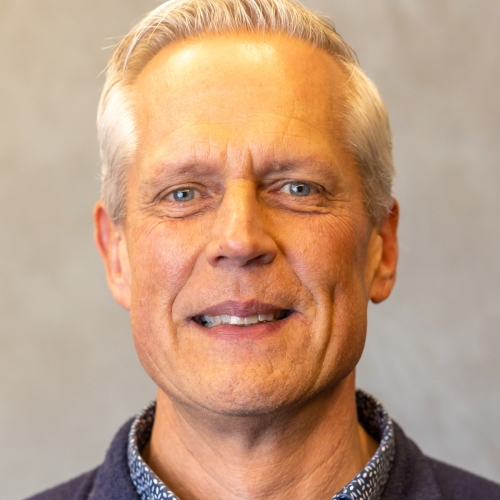
Professor
